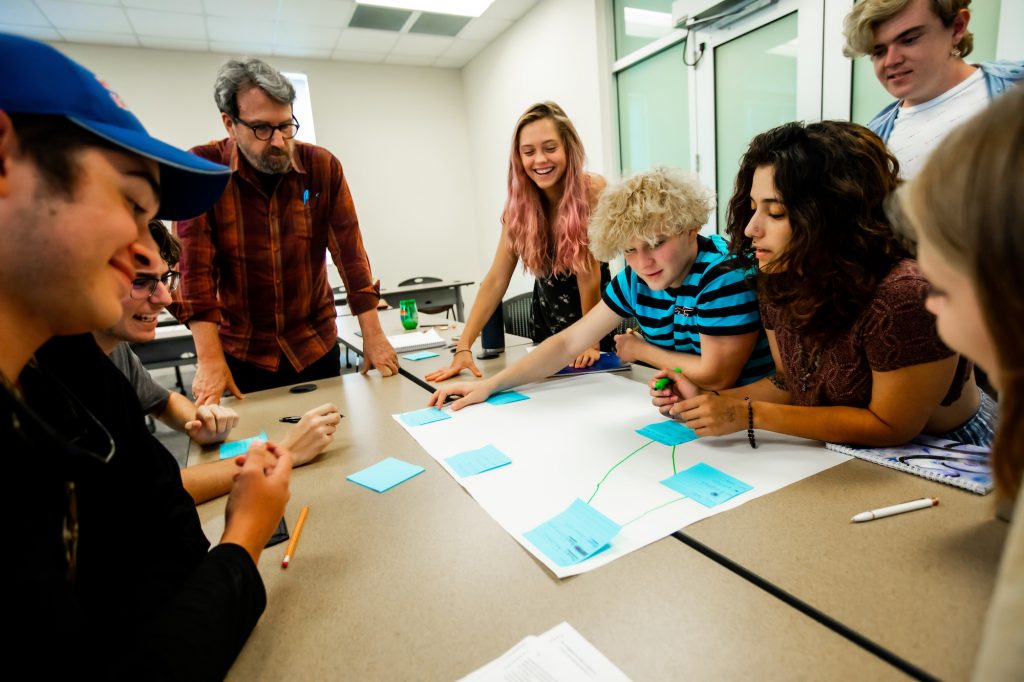As an Urban Studies student at New College, you will learn about cities throughout the world, as well as the range of issues that these cities grapple with.

About the Urban Studies Area of Concentration
Students in Urban Studies draw on multiple disciplines from across the curriculum in order to understand the social, political-economic, cultural and ecological processes of growth and decline that have shaped the structure and development of human settlements, from rural villages to metropolitan regions.
The focus of urban studies is the city, but this is not as narrow as it might seem. Urban studies covers the history and development of forms of human settlement from rural villages and small towns to sprawling metropolitan regions and contemporary global “mega-cities.” To understand the city as a form of human settlement, it is necessary to understand the history and processes of urban growth (and decline); the patterns of urban vs. suburban development; the politics, economics and sociology of the way we create and occupy the built landscape; the contested nature of the city as a site of inequalities of class, race and gender; and the relationship of the built environment to the underlying natural systems of the planet.
For an area of concentration in Urban Studies, students design a multidisciplinary program of course work that includes a core introduction to urban issues, tools for urban analysis, and foundational work in disciplines related to the student’s particular interests and career aspirations. Advisers work closely with students to explore career possibilities and craft a coherent and focused program, oriented towards a career path.
Featured Course
SOCI 3034
Sustainable Cities
Discussions of urban sustainability often skip a key question: what do we think is worth sustaining? What kind of place delivers the desired quality of life, in a manner that is ecologically responsible, economically viable, socially equitable and democratic? How can we create human settlements that meet our needs, reflect our values and aspirations, and yet minimize their impact on climate change and global warming? What do we need to do to respond to changes already underway, to ensure that our communities are sustainable and resilient? All of this has only gotten more difficult in recent years, as we are ever more urgently required to accomplish more with less. This course explores some of the opportunities, strategies and obstacles to creating more sustainable cities and neighborhoods. The course will examine practical, place-based approaches to positive community transformation that avoid the pitfalls of heavy-handed planning, conventional development practice, regulatory bureaucracy, and unproductive local politics.
Recent Courses
- Urban Sociology
- Introduction to Sociological Research Methods
- Research Methods in Political Science
- Ethnography
- Introduction to Sociology through Inequality
- Science, Policy, Media and Politics
- Medieval Cities
- Rise of Urban America
- Death, Hell, and Capitalism
- Urban Ecology
- Sustainable Cities
Career Pathways
- Government Research
- Urban Planning
- Nonprofit Administration
- Law
- Education
- Social Science Research
Contact Us
Faculty Steering Committee
Dr. Carrie Beneš
Professor of History
Chart Your Course Director

